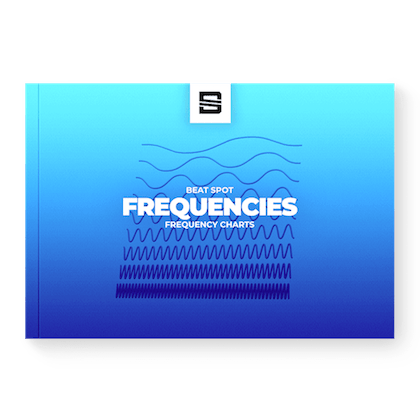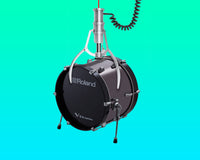Table of Contents
Whether you are a producer that has to mix your own songs or a beginner that wants to approach mixing, how to start a mix is always a great dilemma. There are tons of schools of thought out there and I would like to tell you mine after years of failure.
Before jumping in
We have to be prepared for the fact that every mix is different and there is no magic formula, but still having a solid method (especially in the first phases) is half of the job. The are some main challenges when mixing:
1 - Ear gets tired
2 - Objectivity gets lots
3 - Being overwhelmed with digital mixing is easy
4 - You run out of time
Each of these becomes reduced or accentuated by how we set up and start a mix.
As we said every mix is different and so it is the quality of the productions sent to you. In the beginning probably you will start to mix shitty material (unless you know very talented persons that will give you the chance to mix their songs) and you have to make decisions in order to make those mixes sound good.
Time is not infinite
Especially when you mix for clients, you don’t have all the time in the world. But this is true also for self-mixing. If you are mixing your own stuff, you already have spent (hopefully) some hours in the production. So you start already with half of your objectivity lost (unless you take a week or two without listening to the production before mixing, which it’s what I suggest you do) so you have less time before starting to make bad decisions.
It’s not that you are a bad producer or musician. It’s just how it works! Even top class engineers don’t finish mixes. They just run out of time. Mixing is not a right or wrong science. It’s an art, a photography. Yes, there are some rules but in the end it’s the snapshot and the sum of a series of decisions made by the mixing engineer.
And so the mantra is to stick to the 80/20 rule.
The Pareto’s Law
The 80/20 rule developed by Pareto says that the 20% of certain factors give you the 80% percent of the outcome in a work. And this is true also for mixing. Let’s make a practical example:
Will a 1.5 db boost in the side around 500hz in a single instrument make the 80% of the result?
The answer is: nope.
In a rap production spending 4 hours on editing, tuning and mixing the vocal make the 80% of the result?
The answer is: hell yes.
(I’m not saying that you should mix just the vocal, but if the beat is well produced, indeed it will need less work than the main protagonist of the tune: the vocal)
The very first listen
Within the first 3 times listening you will get a clean list of things to do. The important ones. Believe me. So before even listening to the song, open a text editor or get a piece of paper and start to write as you listen actively to the tune. Write down all the important issues that your ear identifies. You will end up with a list like this:
-Vocal doesn’t hit the right note every time
-Overall lack of “strength” in the “drop/chorus”
-Tonal balance not right (too boomy)
-Too much elements wide
-Kick and bass not working together
Now you have a clear roadmap of what doesn’t work. Of course with time and with more mixes done you’ll learn to identify these problems in no time. If you are just starting out, find the more obvious ones.
Find references
If you are about to mix your own production this step is even more important. Find a couple of different references and do a back and forth between these to refresh your ears. There are a lot of plugins that automatically match the reference to the current average loudness of your track. If you are mixing for clients or friends, ask kindly for songs with the same vibe that they like.
Organize the session
Import the stems and if present a rough mix. It’s important every now and then to check the rough to know if you are doing harm to the song or you’re actually improving it.
Organize and color the stems of the same family with the same color. Everyone has a different approach. Find the organization you like best.
Put your meters in
If you have no meters in place, put in the master at least a spectrum analyzer (like the Voxengo SPAN) and a VU meter. This will allow you right from the beginning to make sure that the sum of all your stems (the single instruments) hit the 0db on the VU meter. If not, raise or lower the gain in the stems
Get your levels right
There’s nothing worse than going back and re-do from scratch levelling from the faders once you are in the creative side of mixing. Get your levels right from the beginning and listen closely to the original levels the composer/producer/band did on the original demo. Levels reflect at least a good 50% of the original intentions, so listen closely before redoing from scratch ALL the levels. Sometimes the producer did a good job so it’s just a matter of tweaking and making sure you’re hitting at the right level.
Remove distractions: start in MONO
Right from the beginning make your master mono. Every DAW has a kind of mono utility plugin. This way you’ll just start to focus on the center (which is quintessential for a good sounding mix) getting rid of the distractions of elements on the sides. Remember to remove the mono once you are satisfied with the overall EQing and balance of the instruments. You’ll need to work in stereo in the last phases of the mix to get a good stereo image
Get even more essential
If you have not an Avantone style speaker, put an EQ with a curve pretty much like this in your master (after the analyzers!). This way you’ll start to work with a real world monitoring and in the zone where 80% of the mix is decided.
Get excited
Mix sounding weak and poor? Start with a better sound right from the beginning by using emulations of preamps (like the NLS, FrontDAW, Slate Consoles, etc..) in each channel. With 1 move you’ll get an already better sounding material to start from.
We have a video about it here.
Go for your list
Now you are ready to do your list of fixes. Go for it, and remember that every channel doesn’t need a tweak if you don’t hear any major issues. Sometimes you can accomplish a great sounding mix with less than you would think.








